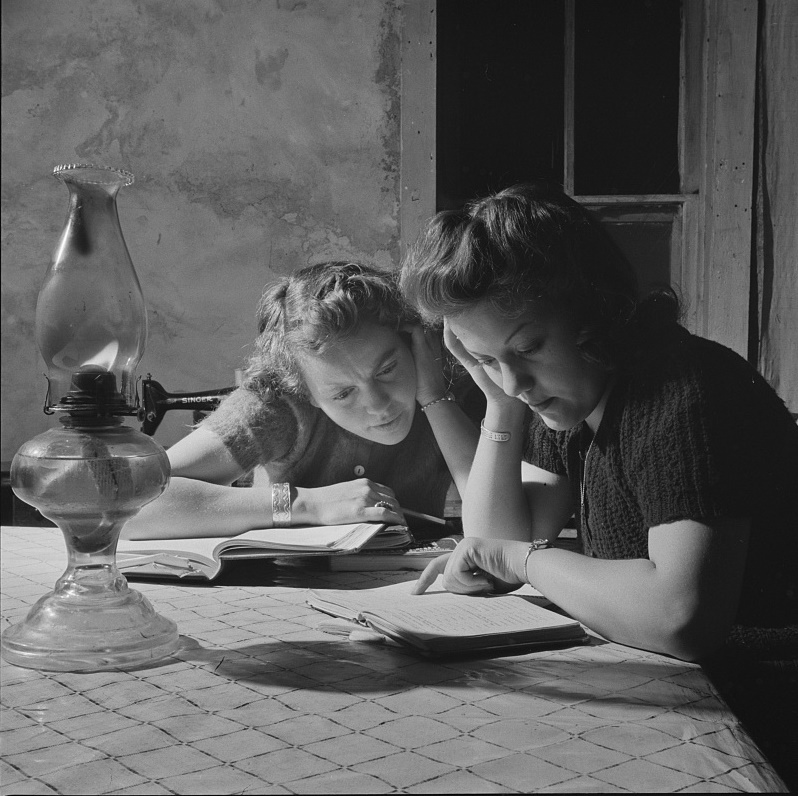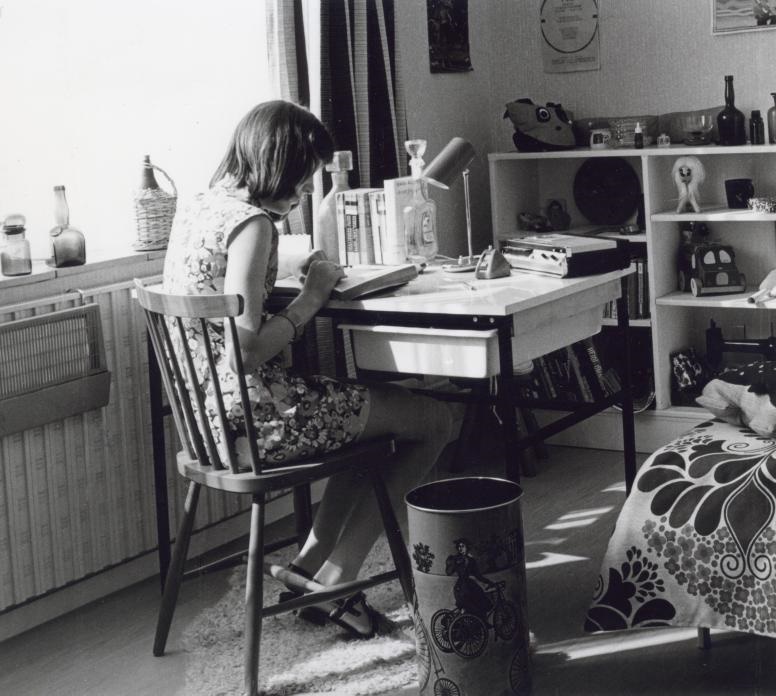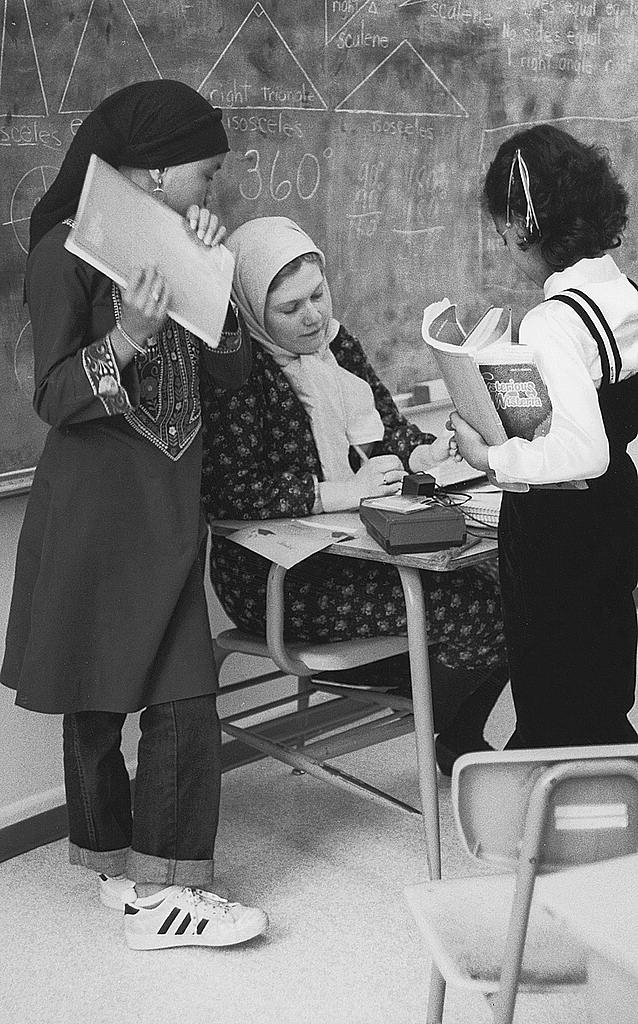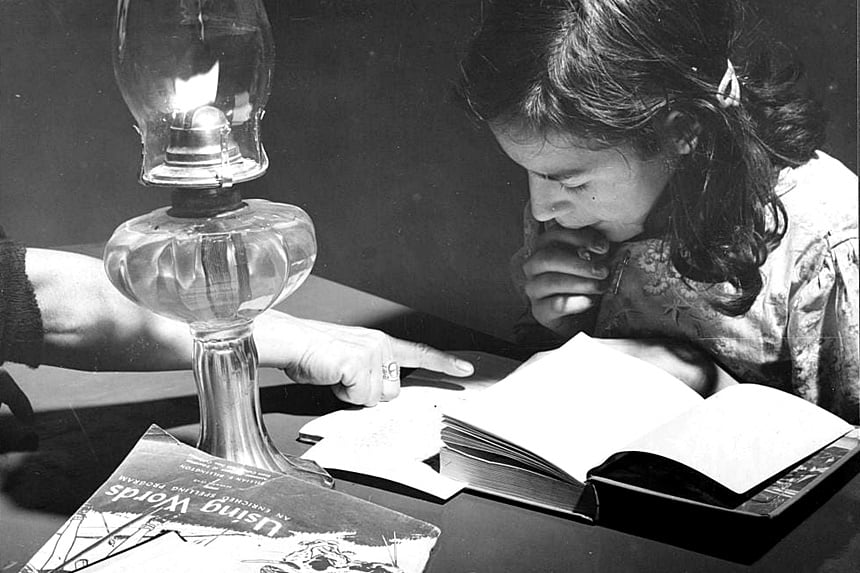Generations of children have shared a dream that might be realized in our lifetime: Homework might be abolished.
At present, homework, which author Alfie Kohn, author of “The Case Against Homework,” describes as second shift work for schoolchildren, is entrenched in our education system. According to one study from 2016, 95 percent of grade school children and just over 91 percent of high school students report they have homework.
How much? Grade schools like to follow the “10-minute rule”— 10 minutes for each grade level the student has passed. High school students took home an average of 7.5 hours of assignments every week. Students generally accept homework as a necessary part of their schooling (77 percent say homework is “important” or “very important”).
However, when students were asked what they considered a primary source of stress in learning, 56 percent said “homework.” Homework was viewed as a primary stressor more than taking tests or trying to get good grades.
But educators wouldn’t assign it if it didn’t serve a good purpose. Teachers give several reasons for handing out at-home assignments, including developing students’ critical thinking, assessing their skills and knowledge, and motivating them to learn. The most popular response was “helping students practice skills or to prepare for tests.” But studies haven’t proven it’s useful for these goals. A complicating factor is that there are too many variables to prove that it’s homework, specifically, that delivers academic benefits.
In addition to teachers, parents often are strong proponents of homework. Eighty percent of parents say they think homework is important. When schools and teachers have chosen not to assign homework, moms and dads grow concerned about their children’s future and insist they bring homework back. They believe kids need the challenge of homework to be successful and prepared for college and career.
Critics of homework have their own arguments. None is more effective than the fact that homework can’t be proven to be helpful. In elementary school, according to Kohn, no correlation has been found between homework and test scores. In high school, it appears to provide only a slight benefit.
Moreover, a study of schools in 47 countries found that school systems that assigned the least amount of homework (Denmark and Czech Republic) had much higher test scores than countries with the most homework assigned (Iran and Thailand).
A study of 28,000 high school seniors found three things correlated to academic success: quality of instruction, motivation, and ability. Homework’s contribution was marginal and sometimes led to more academic problems that it solved. So, we’ve come to a point where educators are considering the idea of homework-free schooling.

Schools have tried to go homework-free in past generations. In 1901, California banned homework for students 14 years and younger. The ban remained in effect until 1917. In the 1930s, the American Child Health Association branded homework as a form of child labor, which had recently been outlawed for many industries. Over the next several decades, the amounts of homework given to students declined.
Some teachers complained about this trend toward little homework. In the pages of the February 1, 1941, issue of The Saturday Evening Post, one grumbled that if the teacher assigns a reasonable amount of good hard homework, it would be met by a “storm of protests from the parents.” They would rather have Johnny spend his free time enjoying wholesome recreation.

But then, in 1957, Russia launched the first man-made satellite into space. Americans knew the Soviets already had an atomic bomb. Now they were winning the space race. Here was proof that the country was falling behind at the height of the Cold War.
To regain the technical lead, we needed smarter Americans, which meant more rigorous curricula. Congress passed a billion-dollar package to improve teaching of science, math, and foreign languages. A return to homework was part of the plan. Homework once again increased.
An article in May 14, 1960, issue of The Saturday Evening Post objected to the increased homework trend, saying that “certain schools have answered the challenge of Sputnik with busy work — meaning more history dates to memorize, more arithmetic problems to copy at home. It is homework hysteria. Often it is unplanned and gives students impossible loads of work one night and little the next. Busywork bores the bright student—and overwhelms the average.”

But a few months later, the Post had changed its tune. An in-depth article in the December 24, 1960, issue called “U.S. Schools: Not the Best, But Not So Bad” compared American schools to the curricula from other countries; in addition to little homework, the article fretted over the effects of TV, telephones, and teachers. It concluded with a six-point plan, the first point being “lengthen our school year and increase the amount of homework required.”
Eventually, the enthusiasm for homework flagged, and in the more casual climate of the late 1960s, homework loads grew lighter. The head of California’s Bureau of Elementary Education said no teacher aware of modern methods would assign such meaningless homework as repetitive arithmetic problems. Such an assignment, she said, kills time and “kills the child’s creative urge to intellectual activity.”
There was another attempt to revive homework in the ’80s. A National Commission on Excellence in Education reported on the cold-war dangers confronting America that arose from low-quality education in “A Nation At Risk” (1983). The Commission concluded “homework is good and more is better.” Ten years after “A Nation at Risk” was published, it was reported that “more homework has been required in 27 percent of high schools, 30 percent of middle schools, and 32 percent of elementary schools. Thus, while some progress has been made, there is still a long way to go.”

But the Cold War ended, and the national drive for quality in education trailed off.
Yet current studies show a majority of schools are still handing out at-home assignments. And while there is little agreement between proponents and critics of homework, there’s general agreement that homework shows little benefit at the grade school level.
But the desire to assign homework persists. There’s a belief that homework develops a child’s self-discipline. It teaches them good work habits, responsibility, and independence. After all, parents might say, that’s how they acquired those virtues. But whether or not that is the case is unresolved. One thing we know to be true is that parents, politicians, and educators will insist on assigning it, and students will complain, procrastinate, and eventually suffer through it.
Become a Saturday Evening Post member and enjoy unlimited access. Subscribe now




Comments
I taught 8th grade math for several years. When I first started I had no intention of assigning homework, but was told by my department head it was required by the school system. He then explained a method l really felt was a tremendous advantage to the students. I gave 3 assignments a week, they went on the board Monday and were due Thursday. All assignments were review and practice of problems already done in class. Repetition is very important to learning math. None of my students felt pressured about the homework, but they did learn to be responsible and set aside time to get the assignments done by Thursday.
But reading other comments on here, I am astounded by the narrow-minded immature thinking of so many readers. “I hated homework when I was in school” is the remark of a person stuck in a teenage level of maturity. A true adult understands we have to do things in life we don’t like to do, but most of the time we are better as a person when we get it done.
Also, the statements that “why do I need to know that if I’m a truck driver?” Wow, what about having an education and a skill so you have choices in life. People rarely stay with the same job all their lives.
But I am astounded that so few people have the realization that Algebra and Geometry aren’t required to make high school kids bored and miserable learning a skill only a few of them will use in their jobs. The thought patterns that are developed when you learn to solve those problems help you with thought pathways when solving all kinds of problems for the rest of your life, and that’s why those classes are important. I really thought people that read a magazine that gives you things to think about would understand how much they benefitted from learning in school.
We need to use social media to push and push for the end of all homework! Then it will end sooner than later.
at Nicole: Why does a student who wants to be a farmer, horse trainer, dog groomer, or a plumber, or a truck driver need to write long papers and essays as if he is going to be some kind of phd level research scientist? What a waste of that student’s time. That student just needs to know enough writing to write notes on and about his interests and make social media posts. I went to school in the 1990s. I am now in my 40s. I have not written a paper in over 20 or so years now. It was a complete waste of my time.
And why do I have to sit in boring algebra classes or calculus, chemistry, cellular biology, physics, and old classic english literature classes when I just want to be a truck driver, or a horse trainer? What a waste of my time!
When I was in school in the 1990s I had to sit through boring algebra, biology and chemistry classes. These classes did not teach practical uses for such things. All those classes came at the subjects as if we were all going to become some kind of research scientists. The stuff we read in English class I could read on the internet ono my own time if I wanted. Why do I need or did I need some teacher in the 1990s telling me what to read and when and then having to answer questions about it as if I were on some kind of game or quiz tv show? I don’t yse algebra, biology, or chemistry at all as a 40-some-year-old adult. It does not help me pay bills, fix things around the house, take care of horses, train horses, or anything like that. Most of my school was a waste of time. I greatly regret much of my education. Not to mention I was, and am a totally blind person with no eyesight, who reads braille and uses a white cane and I was mainstreamed into the k-12 public school system and I was the only blind person inin the whole school. I had very few friends. My teacher of the visually impaired who had a full caseload in the 90s only came to my high school twice a week maybe for two or so hours. Why don’t they teach home maintenance, gardening, first aid, animal training care and management, cooking, cleaning, and other practical useful things in k-12 U.S. schools? Why could I not have gone to my local k-12 school and spend the morning grooming horses, or learning how to walk dogs and care for dogs and rabbits and horses? or how to care for plants? Why do schools hire janetors. Why not have students who love cooking be the cooks for the schools in the U.S. Algebra, calculus, biology from the perspective of a phd researcher, chemistry and physics for every single student is just wasting most students’ time!! I greatly regret my education!! It wasn’t education, it was memorize and regurgitate these facts–memorize this poem then go recite it back to the teacher!! What a waste of my time!
I think home time should be family time, all homework should be completely abolished, no exceptions! Schoolwork belongs in school. I hated homework when I was in school in the 1990s.
As a former teacher of language arts, I found homework beneficial for my students, particularly for reading. For those who struggled decoding words even on a middle school level, reading together in class and discussing the material made it easier for students of all levels to respond to questions. In addition, assigning responses for homework allowed students to reflect and compose a better answer than if they were hurried to do so in class. For those who really need time to gather thoughts for writing, this gave them the time needed without feeling like they were always the last ones done. I found the answers to critical thinking questions to have more elaboration.
I think homework for high-school and middle school has merrits but it also has burdens. High school students need to be capable of reading novels and longer pieces of literature outside school as well as write longer papers. These skills are a must for further education and jobs.
A good balanced article on the issue of homework. Ditto Bob’s comments.
As a Substitute Teacher for a local rural school district I can see the trend that homework is becoming less and less, especially among those teachers age 35 and under. Oddly enough, I notice the best teachers are those over the age 40 and often with tenure. BTW, since we are in a small rural district, the goons of NEA (National Education Association) are not a factor which is a plus for both students and parents. Bad teachers usually last no more than two years and when they’re fired, they’re outta here!
Yes, homework (pro and con) remains a riddle to this day with almost as many variables as there are students. What’s too much for one, might be fine for another. My own thoughts would ideally be the teacher having the ability to assess each student individually, and have the homework tailored to their specific needs. Basically focusing on the subject they may be weak in, spending more time to be stronger in grasping and understanding it as to not fall behind.
Some students would have math homework on a given day, others history, geography, science, etc. If it’s the day before a history test, the teacher can go over everything that will be on the test the next day with the students taking notes, then the homework for that afternoon/evening would focus on that. Optional open book tests are good for students not wired to memorize as such.
Engaging with the books is a positive thing. If the student isn’t sure of an answer, they can go into whichever chapter and find it. There’s that “I found the answer!” moment which is very positive. For students that want to keep the book closed, that’s their choice. Sufficient time should be given to accommodate the majority.
So homework should be about learning and not regurgitating for taking tests. There is some crossover, of course. That’s the tricky part that still hasn’t changed much since the 19th century. Striking that elusive balance of time and learning. Are we seeing the end of homework? Possibly, but probably not.